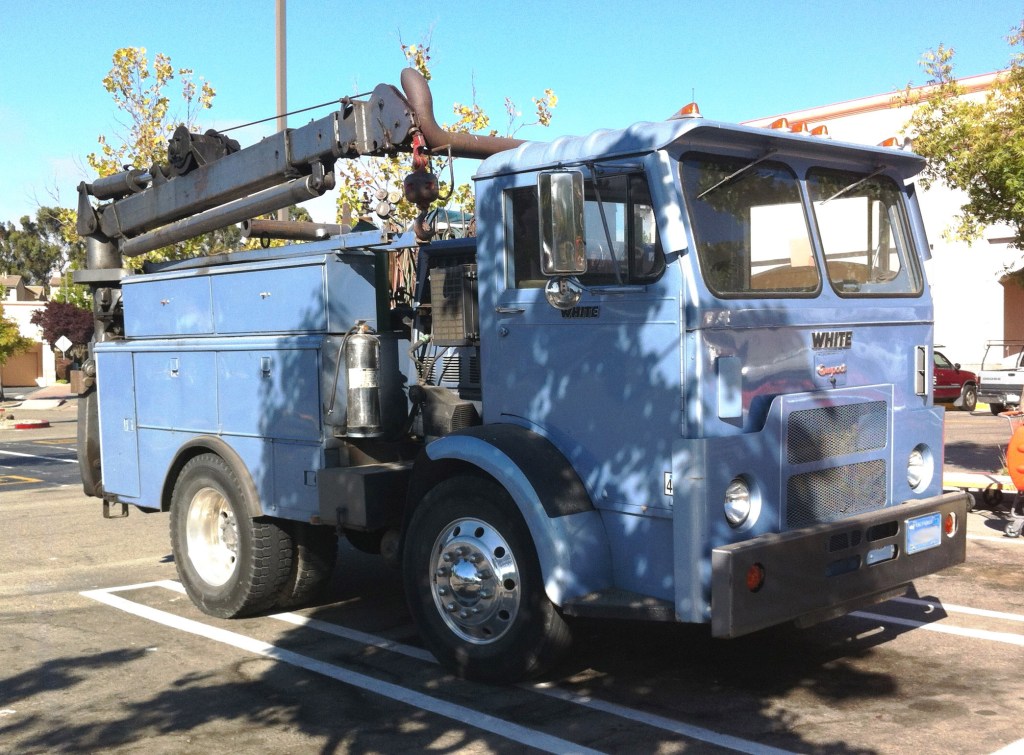I came out of Home Depot a few weeks back and this very cool truck was parked down the aisle from mine. The shape and look were familiar from my childhood but I wasn’t sure of the brand. Turns out it was a White Motor Company Compact, a 60’s era COE (cab over engine) vehicle. The COE design had been popular for decades because regulations in the eastern half of the country severely restricted the overall length of a semi-tractor with trailer. Shortening the tractor made it possible to use a longer trailer and haul more stuff.
This configuration wasn’t necessary for vehicles such as the welding truck; it’s just one of those things they did because COEs were in production. The COE design fell out of favor for heavy-duty vehicles after the 1982 highway bill changed the way length was figured. The new rules only counted the trailer, limiting its length to 53’ (which happens to be the length of the longest shipping containers now in use). The COE design has remained popular with light- and medium-duty trucks and is frequently used in cube vans (Brian Way’s Shop on Wheels is based on one such vehicle).
Just because the auto companies stopped making heavy-duty COEs doesn’t mean people stopped using them. You don’t see them that often but there are still some around. I consider myself lucky to have stumbled across the welding truck. I like everything about it: the diesel stick welder (a Lincoln Commander 400) behind the cab, the crane, and side boxes. From the back you can see some oxy acetylene tanks in the bed, some 120-volt receptacles, and a floodlight. On the left side of the truck there is a heavy duty overhead rack—though I’m not sure why I’m singling it out, because everything on this truck is heavy duty.
For more on the history of COEs see The Rise and Fall of the American COE Semi-Tractor. The KW Kid has curated an excellent gallery of COEs on Flickr. And the video below contains a pictorial history of White Motor Company vehicles and concept vehicles from 1930-1950. Founded in 1900, the company went bankrupt in 1980, was purchased by Volvo and merged into White-GMC. The White brand label has disappeared from trucks but can still be found on some corn planters.
